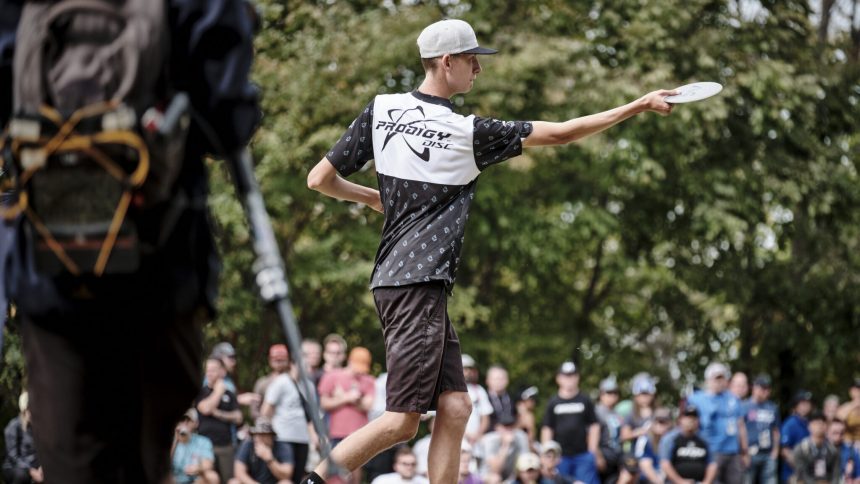Disc golf is a recreational activity that has gained popularity in recent years, appealing to people of all ages and fitness levels. From casual players to competitive players, the game requires a combination of physical fitness, mental focus, and disc-throwing skills. As you progress from a casual player to a competitive one, your fitness level plays a crucial role in determining your performance. In this article, we will explore the essential fitness elements to focus on, helping you take your disc golf fitness to the next level.
Cardiovascular Endurance
Disc golf tournaments typically involve walking or jogging between holes, which demands a good level of cardiovascular endurance. A strong heart and lungs enable you to maintain a consistent pace and recover quickly between shots. To improve your cardiovascular fitness, incorporate aerobic exercises into your routine, such as:
- Jogging or running
- Cycling
- Swimming
- High-Intensity Interval Training (HIIT)
Start with shorter sessions (20-30 minutes) and gradually increase the duration and intensity as your fitness level improves.
Muscular Strength and Power
Disc golf requires both upper and lower body strength, particularly in the legs, core, and back. A strong foundation allows you to generate power for your throws, maintain control, and avoid injuries. Focus on exercises that work multiple muscle groups at once, such as:
- Squats, lunges, and deadlifts (legs, glutes, and back)
- Planks and Russian twists (core and obliques)
- Chest presses and rows (upper body)
Aim for 2-3 sets of 8-12 reps for strength exercises and 3-5 sets of 8-12 reps for power exercises.
Good flexibility and mobility enable you to maintain proper throwing techniques, reduce the risk of injury, and improve your overall movement efficiency. Incorporate stretches and mobility exercises into your routine, focusing on your:
- Neck and shoulders
- Chest and upper back
- Lats and glutes
- Hamstrings and calf muscles
- Ankles and feet
Prioritize static stretches and dynamic movements to improve your flexibility and mobility.
Disc golf is as much a mental game as it is physical. A strong mental game enables you to stay focused, manage frustration, and perform under pressure. Practice mental toughness-building exercises, such as:
- Visualization exercises
- Mindfulness and meditation
- Positive affirmations
Regulate your breathing, remain calm, and focus on your game plan to optimize your mental performance.
A well-planned diet and effective recovery strategies are essential for peak performance. Fuel your body with a balanced diet, including:
- Paleo-friendly foods, such as fruits, vegetables, lean proteins, and whole grains
- Electrolyte-rich foods and drinks, like bananas and coconut water
Prioritize rest and recovery, aiming for 7-9 hours of sleep each night and taking rest days as needed. Adequate recovery allows your muscles to repair and rebuild, reducing the risk of fatigue and injury.
Additional Tips for Competitive Disc Golf
To take your disc golf fitness to the next level, consider the following additional tips:
- Join a recreational or competitive league to hone your skills and gain competitive experience
- Practice and focus on specific skills, such as accuracy, power, and control
- Analyze your game and work on weaknesses to improve your overall performance
- Develop a pre-game routine and mental preparation strategy to maximize your focus and confidence
Conclusion
Transcending from a casual to a competitive disc golfer requires dedication, perseverance, and a well-planned fitness regimen. Focus on cardiovascular endurance, muscular strength and power, flexibility and mobility, mental toughness, and nutrition and recovery to optimize your performance. Additional tips, such as league participation, skill practice, and mental preparation, will help you take your disc golf fitness to the next level. With consistent training and a strong mental game, you’ll be ready to take on the most challenging courses and compete against the best disc golfers.
FAQs
Q: How often should I practice and train?
A: Aim for 3-4 times per week, with at least one day of rest in between. As you progress, you can increase the frequency and intensity of your workouts.
Q: How do I measure my fitness progress?
A: Keep track of your workouts, including exercises, sets, reps, and weightlifting. Monitor your performance metrics, such as distance thrown, accuracy, and mental focus. Regularly self-assess and adjust your training program as needed.
Q: Can I still improve my fitness even if I have a previous injury or limitation?
A: Yes, you can modify exercises or incorporate alternative exercises to work around your injury or limitation. Consult with a doctor or fitness professional to determine the best course of action for your specific situation.
Q: How much time should I dedicate to mental preparation and visualization exercises?
A: Aim for 10-15 minutes per day, 2-3 times per week. You can also integrate mental preparation into your warm-up routine or pre-game routine.
Q: Can I combine disc golf with other fitness activities?
A: Yes, absolutely! Disc golf can complement other fitness activities, such as running, cycling, or swimming. Incorporating multiple activities into your routine can help keep your mind and body engaged and interested.
Remember to always prioritize proper form, safety, and injury prevention when training for disc golf. With persistence and dedication, you can take your fitness to new heights and dominate the competition.








